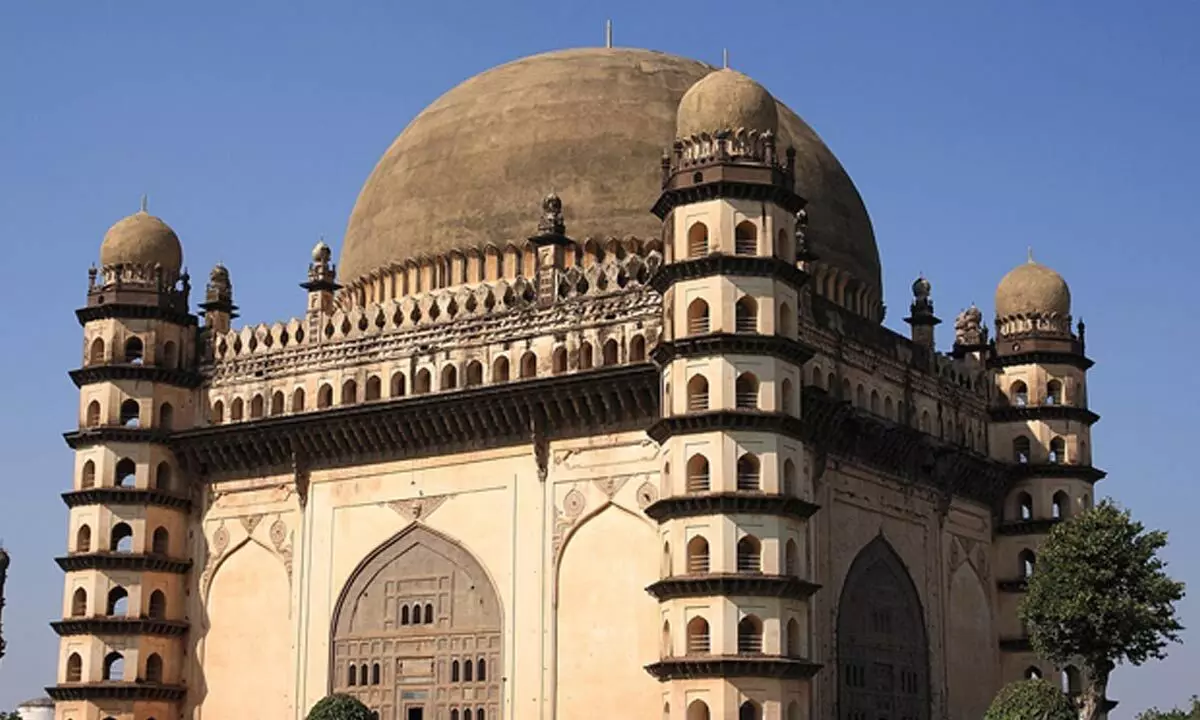Live
- Rich tributes paid to former PM Vajpayee
- Priority to Christian Dalits and tribals in housing scheme: CM Revanth
- 3-day ‘Kuchipudi Pataka Swarnotsavalu’ to begin tomorrow
- Vajpayee hailed for introducing several admin reforms
- YSRCP ‘Porubata’ against power tariff hike tomorrow
- Rama Sena leader Kambala joins BJP
- Now, cattle to be issued Aadhaar ID
- Former I&PR chief in ACB net
- Naidu presents wishlist to Centre
- MyVoice: Views of our readers 26th Dec 2024
Just In
Waqf Board claims ownership of 53 historic monuments in State


The Waqf Board’s latest claims on historic properties have sparked a new wave of controversy in state.
Kalaburagi: The Waqf Board’s latest claims on historic properties have sparked a new wave of controversy in state. Following a hotly debated issue regarding the listing of farmers' land as Waqf property, reports have now surfaced that the Waqf Board is claiming ownership of 53 historic monuments across the state, including prominent sites like the Gol Gumbaz, Ibrahim Roja, Bara Kaman, and the forts of Bidar and Kalaburagi.
According to information obtained through an RTI application, the Waqf Board declared 43 protected monuments in Vijayapur as Waqf properties back in 2005. Vijayapur, the former capital of the Adil Shahi dynasty, is home to many architectural marvels, which the Board now claims under its jurisdiction. The monuments were reportedly classified as Waqf properties by then Vijayapura deputy commissioner and District Waqf Board Chairman, Mohammad Mohsin, who also served as Principal Secretary of the Department of Health and Family Welfare (Medical Education) at the time. Mohsin, when approached, stated, "I don't remember the exact number of monuments declared as Waqf property, but I followed the directives as per the government gazette notification from the Revenue Department."
Many of these monuments were originally declared as sites of national importance by the British government on November 12, 1914, underscoring their significance in Indian heritage. The Waqf Board’s declaration reportedly referenced property ownership rights documents and certificates issued by local authorities without consulting the Archaeological Survey of India (ASI), which is responsible for the preservation of these protected monuments. This unilateral decision has raised questions about the ownership and custodianship of these historic sites, with critics arguing that such claims could lead to administrative complications and further disputes over land and heritage rights. With tensions brewing, the state government and the ASI are expected to respond to the Waqf Board’s claims, as Karnataka's cultural and historical preservation continues to draw attention amidst complex land ownership debates.

© 2024 Hyderabad Media House Limited/The Hans India. All rights reserved. Powered by hocalwire.com






